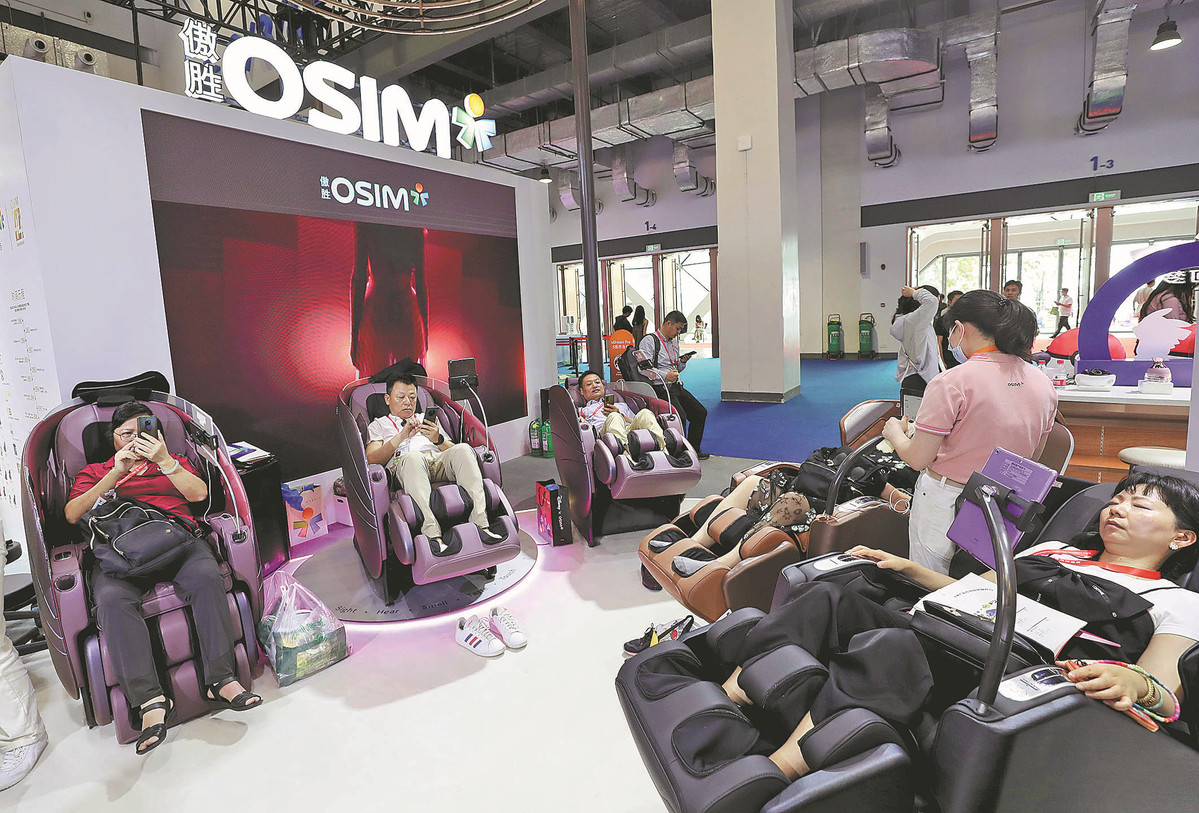OSIM to expand on growing offline purchases

Ever since China optimized its COVID-19 response measures, the recovery in offline consumption has accelerated, said OSIM International Pte Ltd, a Singapore-based health products provider.
The company will continue to expand investments in the country, it said.
Chinese consumers have pursued a healthier lifestyle since the pandemic, and the purchase of intelligent massage chairs has become one of the options in health management. The company said sales have grown this year.
So far, OSIM has opened nearly 200 stores in China, its largest market globally, and sales in top-tier cities such as Beijing, Shanghai, Guangzhou and Shenzhen of Guangdong province have been the highest, the company said.
"The continued expanding demand has provided a valuable growth opportunity for OSIM, and we will leverage this opportunity to map out a more suitable branding plan for the China market and better satisfy consumer demand," said Yin Dongyun, assistant general manager of the Shenzhen region of OSIM China.
OSIM said it plans to fully capitalize on the Regional Comprehensive Economic Partnership and Hainan Free Trade Port, deepen its trade cooperation with China, and dynamically adjust its industrial and supply chains.
The RCEP agreement, which took effect on Jan 1, 2022, includes 15 Asia-Pacific countries. The trade pact is expected to reduce tariffs by up to 90 percent on goods traded among the members over the next two decades.
Last year, Chinese consumers' per capita expenditure on healthcare reached 2,120 yuan ($296.9), and the value edged up 0.2 percent year-on-year, according to the National Bureau of Statistics.
The COVID-19 pandemic has fueled an unprecedented surge in health awareness among Chinese consumers. The population of middle-income Chinese consumers has exceeded 400 million, which constitutes a strong consumer base, and the China market has tremendous resilience, a recent report by Boston Consulting Group showed.
China has a large number of middle-aged, elderly and Generation Z consumers (those born in the mid- and late 1990s and into the 2000s), and they have become economically capable and are paying close attention to their health, OSIM said.
"Chinese consumers have shown an increasingly growing consumption demand online. To satisfy their demand, we have further expanded our online sales channels last year and will further integrate online and offline sales. By doing so, we hope to provide more convenient shopping platforms for consumers living in third- and fourth-tier Chinese cities, where there aren't any brick-and-mortar stores opened yet," Yin said.
Currently, OSIM operates flagship stores on major e-commerce platforms such as Tmall and JD. The company also sells its products through some mobile apps and third-party platforms.
Alibaba's e-commerce platform Tmall said it has seen an increasing number of foreign brands, which feature new lifestyles and new trends, expand their presence in China and tap more Chinese consumers by operating stores on the platform.
"It is noteworthy that we have seen the fastest consumption growth rate from consumers who live in third- and fourth-tier cities. Many high-end international niche brands don't operate physical stores in smaller cities, and local consumers have formed a habit of buying those kinds of products online," said Zhu Minjuan, an executive at Tmall International.
Meanwhile, OSIM plans to leverage the business opportunities of the Hainan FTP.
In June last year, it opened its first store in Haikou, the provincial capital. A three-time participant of the China International Consumer Products Expo, which is held in Haikou annually, OSIM said the spillover effect of the event has been obvious.
In 2022, a total of 196 foreign-funded enterprises — mainly from Singapore, Australia, Japan, South Korea and Thailand — were established in Hainan. Besides, a group of major foreign companies has also increased their investments in the province, said Ni Qiang, vice-governor of Hainan.
Invest in China Copyright © 2026 China Daily All rights Reserved
京ICP备13028878号-6
 京公网安备 11010502032503号
京公网安备 11010502032503号





